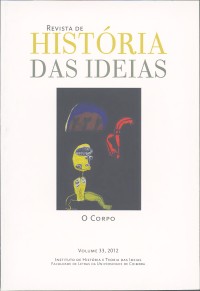Please use this identifier to cite or link to this item:
https://hdl.handle.net/10316.2/41375| Title: | Vegécio e os leitores medievais: a última estocada: apresentação de um novo livro de Christopher Allmand | Other Titles: | The Middle Ages reception of Vegetius: the last thrust | Authors: | Monteiro, João Gouveia | Issue Date: | 2012 | Publisher: | Imprensa da Universidade de Coimbra | Abstract: | Este artigo apresenta ao público de língua portuguesa a obra recente
(Cambridge, 2011) de Christopher Allmand, um antigo e muito prestigiado professor da Universidade de Liverpool. O novo livro, intitulado The 'De Re
Militari' of Vegetius. The Reception, Transmission and Legacy of a Roman Text in the
Middle Ages, analisa de forma extremamente original a receção, na Idade Média e
nos alvores do Renascimento, do mais importante manual militar da Antiguidade,
escrito por volta do ano 400 d. C. Para o efeito, C. Allmand dedicou-se, durante
décadas, a analisar, em perto de 100 bibliotecas europeias (e não só), mais de 200
manuscritos do texto latino de Vegécio e quase 100 traduções vernaculares do
De Re Militarü O pressuposto, é genial: estudar a forma como a cultura medieval
acolheu este importante compêndio de arte da guerra com base, sobretudo,
nas "marginália" (isto é, nas glosas) que os leitores foram anotando, ao longo
dos séculos VII a XVI, nos manuscritos de Vegécio que iam consultando...
O resultado final é um trabalho de uma envergadura monumental, de cortar a
respiração e que qualquer medievalista gostaria de ter escrito. Vegécio mostra-se
aqui, surpreendentemente, muito menos o conselheiro tático miúdo, o grande
estratego militar, e muito mais o grande pensador do exército como instrumento
de consolidação do Estado e da administração central. This study introduces the recent work of the prestigious Liverpool University professor Christopher Allmand (Cambridge, 2011) to Portuguese readers. The new book intituled The T)e Re Militari' of Vegetius. The Reception, Transmission and Legacy of a Roman Text in the Middle Ages examines in a most original way the Middle Age and Renaissance's reception of this most important Antiquity military treatise (written in c. 400 A.D.). Over the last decades, Allmand visited more than 100 European libraries, devoted himself to the study of more than 200 manuscripts of the Vegetius Latin textbook and to the examination of almost 100 vernacular translations of the De Re Militarii His starting point is brilliant: by examining the marginalia (side notes and comments) that different readers through time added to the manuscripts he thrives to understand the Middle Age reception of this Art of War textbook. The final result is a monumental work, breathtaking, one that any medieval historian would have liked to have written. Surprisingly, Vegetius reveals himself not so much as a narrow minded tactical advisor but as a great strategist with a clear understanding of the role of the Army as a State and public administration instrument. |
URI: | https://hdl.handle.net/10316.2/41375 | ISSN: | 0870-0958 2183-8925 (digital) |
DOI: | 10.14195/2183-8925_33_15 | Rights: | open access |
| Appears in Collections: | Revista de História das Ideias |
Files in This Item:
| File | Description | Size | Format | |
|---|---|---|---|---|
| vegecio_e_os_leitores_medievais.pdf | 407.48 kB | Adobe PDF |  |
Items in DSpace are protected by copyright, with all rights reserved, unless otherwise indicated.
